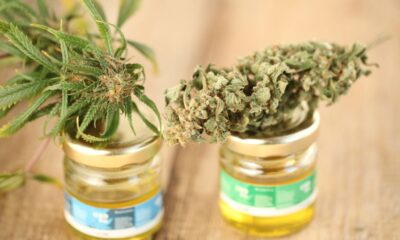Cannabis 101
What You Need to Know About Cannabis

According to some reports, around 182 million people across the globe consume marijuana, however, the United Nation’s World Drug Report estimates the number to be closer to 238 million. With North American countries, such as the United States and Canada, showing leniency in the production, use, and distribution of this plant, many people might be curious to know what the hype is all about.
Here are some essential things you need to know about cannabis, the so-called ‘miracle plant’.
The Basics About Cannabis
When people hear the word ‘marijuana,’ a lot of them think about the negative connotations associated with this naturally-occurring plant. This is why it’s important to go back to the most basic question: what is cannabis? Cannabis is a plant that grows naturally in various climates, especially tropical and temperate areas. In fact, it is so easy to grow that it can even be cultivated indoors.
What makes this crop different is its chemical contents. It has compounds (also called cannabinoids) such as tetrahydrocannabinol (THC), cannabidiol (CBD), and cannabinol (CBN). These compounds induce different effects on the human body, depending on the amount ingested or applied.
The marijuana plant has three primary species, namely Cannabis sativa, indica, and ruderalis. Sativa is known to give a ‘head’ high, which gets the creative juices flowing. It also gives an energy boost and enhances focus, making it perfect for use during the day. These effects are due to its balance of THC and CBD content.
Indica produces a ‘body’ high, which contains considerable amounts of THC, the psychoactive component of marijuana. It has sedative properties, allowing for effective pain relief and insomnia treatment. Meanwhile, ruderalis has low amounts of THC, but what makes it special for many budtenders is its auto-flowering attributes, making it easier to grow. Many growers are cross-breeding these different species to create hybrid strains that have the desired amount of cannabinoid and growth.
Medical Marijuana Through the Ages
You might be thinking that the medicinal use of marijuana is a modern-day discovery. In truth, the medical application of this crop can be traced way, way back to ancient times. Research shows that as early as 2737 BC, the ancient Chinese used this herb as a treatment for a wide variety of conditions such as rheumatism and gout. There is also evidence of cannabis being used to cure medical conditions in ancient Egypt. One of the oldest medical textbooks, The Ebers Papyrus, written circa 1550 BC, details how hemp was used to treat depression, glaucoma, hemorrhoids and even cancer.
The cannabis plant is valued by other cultures too for its religious, recreational and even spiritual significance. These cultures include ancient Japan and India. Even in the Medieval Ages, marijuana was incorporated into folk medicine, especially for treating ailments and illnesses like coughs and tumors.
Today, modern research is only beginning to recognize hemp for its valuable potential in medicine. Marijuana is now helping care for and treat a wide range of both minor and severe conditions, including epilepsy and cancer. In fact, CBD oil is found to be effective in minimizing extreme conditions in people suffering from a rare form of epilepsy. Moreover, it shows promise in reducing nausea and vomiting in cancer patients. It also aids in regaining lost weight brought on by cachexia, a cancer-related wasting disease similar to anorexia.
Other conditions that marijuana and its cannabinoids can help with include multiple sclerosis, HIV/AIDS, diabetes, Alzheimer’s Disease, and many other debilitating diseases and symptoms.
Other Uses of Cannabis
Aside from using hemp to treat minor and major medical conditions, this plant also has huge potential in sexual health and skin health. According to research, this herb increases sexual desire in women by up to 20%. THC is said to activate a part of a woman’s brain that deals with sexual arousal, increasing the libido and creating a healthier sex life. Moreover, it is found to reduce discomfort during sex, making the experience a more pleasurable one for women.
CBD also exhibits the most potential for skin care in that it can address many issues encountered by many people, including acne attacks, oily skin, dehydration, aging, and itching. It has anti-inflammatory and pain-relieving properties that can prevent swelling and pimples, as well as treat acne and even bug bites. CBD has two working effects in the skin: it can moisturize skin or regulate oil production, when needed.
Of course, no list is complete without mentioning the recreational use of marijuana. Whether to uplift your mood or to energize yourself, this plant can definitely improve your disposition. Aside from treating mood and mental disorders, it is used to relieve stress and induce relaxation.
Legalization of Cannabis Across the Globe
With more and more studies being conducted on this so-called miracle plant, many countries around the world are allowing the medical and even recreational use of cannabis. As of today, 30 countries permit the use of medical hemp. Check out the status of marijuana legalization across the globe:
- Uruguay
When it comes to marijuana laws, Uruguay is most noteworthy. This South American country was the first to legalize cannabis fully way back in 2013. The reason for the legalization was to facilitate efficient treatments for patients. With the production and distribution of cannabis being legalized, and thus regulated by the government, Uruguay anticipated lower drug-related crime statistics.
- Canada

Canada was the second country to legalize the medical and recreational use of cannabis countrywide. Regulation is also the reason why this plant was legalised in Canada. Because it is regulated, the government can prevent minors from using it, while increasing tax revenues and preventing criminal organizations from profiting.
- United States
The midterm elections held in November 2018 resulted in further legalizing medical marijuana throughout the United States to include Utah and Missouri, the two most recent states that allow the use of this herb for medicinal purposes. Out of the 33 US states that have legalized marijuana to date, ten of them, including Washington, DC, also permit the recreational use. However, marijuana remains illegal on a federal level.
- Others
Europe is seen as the most progressive region when it comes to therapeutic hemp. European countries like The Netherlands, Poland, Romania, Norway, and Germany have allowed patients easier access to this plant and its compounds. Nations such as France and Spain allow using cannabis-derived medicine only for specific conditions.
Regarding African countries, Zimbabwe is a trailblazer when it comes to allowing this plant for medical use. Patients seeking to use this herb should have the appropriate permits.
Marijuana Products You Can Use
-
Cigarettes and Vapes
Smoking marijuana in rolled, cigarette-form is one of the most popular ways to consume it. In states in which marijuana is legal, for recreational and medical uses, you can purchase dried buds and joints in accredited dispensaries. If you want to avoid the negative effects of smoking, inhaling vapors might be your best option. These dispensaries are also likely to carry vape liquids infused with cannabinoids.
-
Cannabis Edibles
Should you prefer a more discreet option, you might want to get edibles. These are food products and drinkables infused with cannabis. You can get these in candy form such as gummies, chocolates, and suckers. Have a liking for baked goods? You are in for a treat as you can get cakes, brownies, and cookies mixed with hemp, as well!
-
Topicals
If you choose not to consume hemp orally, topical products are perfect for you. You can get these in the form of tinctures, creams, balms, and ointments. These are great for relieving muscle and joint pains as you can directly apply them to targeted sites. Moreover, using topicals allows for the fairly discreet consumption of cannabis. You can also orally ingest tinctures by simply placing a few drops under your tongue.
-
Other Cannabis Products
Cannabis-based products are not only good for your skin, but also your hair. This is why there are shampoos infused with cannabinoids. Other products you can buy include capsules, lotions and essential oils.
When getting these products, make sure that you have a good grip on the marijuana laws in your state, and then find a licensed dispensary. Take note of the dosage, as well as the cannabinoid content and percentages. This way, you can get the dosage you need and want. Keep in mind that you can purchase products mixed with cannabis with high amounts of CBD but without THC. This means that it will not get you high but still give you the benefits of consuming cannabis.
Final Words
From the medical, religious and recreational uses of marijuana in ancient times to the recent modern-day developments, it cannot be denied that this plant is gaining ground in many parts of the world. These developments have helped many patients and recreational users to get easier and safer access to this naturally-occurring substance. With the increasing amount of support given to, and research into, studying and legalizing cannabis, more people can take advantage of what cannabis has to offer.
Medical Disclaimer:
The information provided in these blog posts is intended for general informational and educational purposes only. It is not a substitute for professional medical advice, diagnosis, or treatment. Always seek the advice of your physician or other qualified healthcare provider with any questions you may have regarding a medical condition. The use of any information provided in these blog posts is solely at your own risk. The authors and the website do not recommend or endorse any specific products, treatments, or procedures mentioned. Reliance on any information in these blog posts is solely at your own discretion.
Cannabis Business
What Is a Dispensary POS System? A Complete Buyer’s Guide (2026)
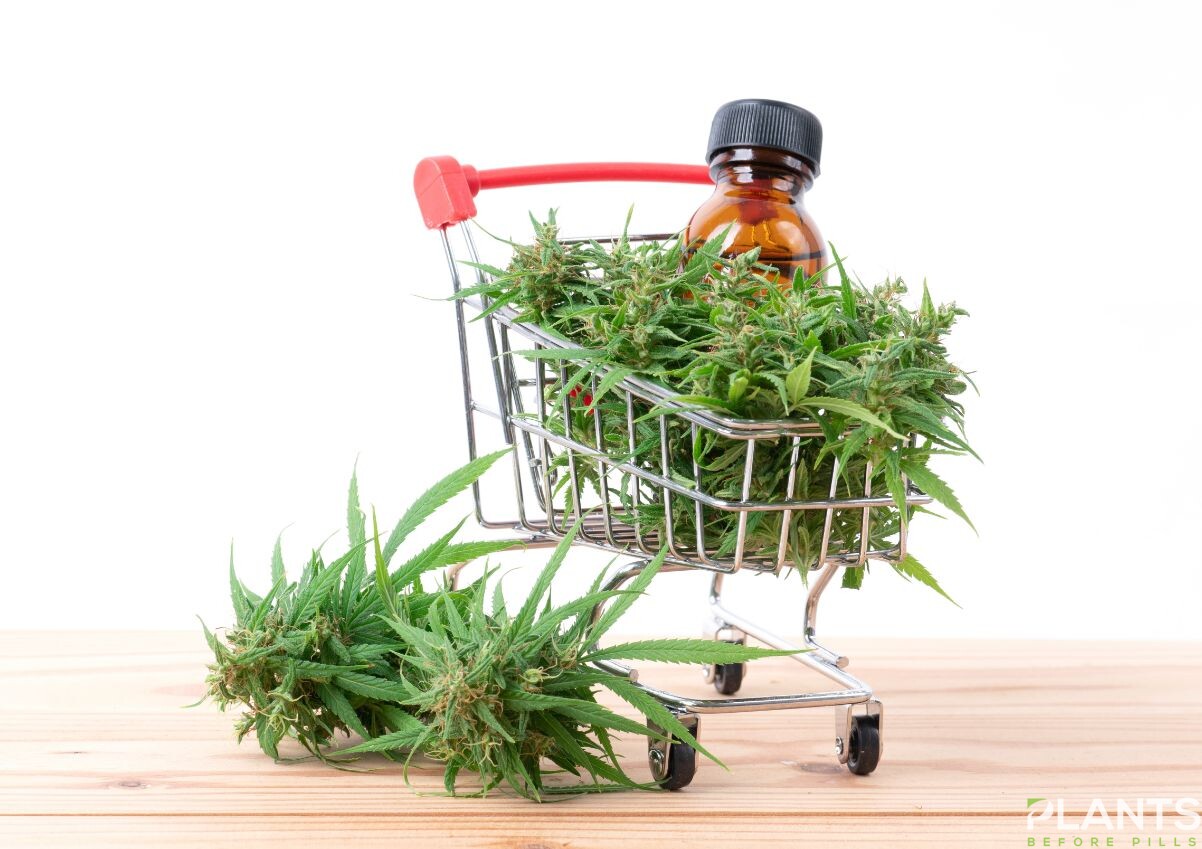
Running a cannabis dispensary in 2026 is more complex than ever. Between evolving regulations, increasing competition, and rising customer expectations, dispensary owners need technology that does more than just ring up sales. This is where a dispensary POS system becomes essential.
In this buyer’s guide, we’ll break down what a dispensary POS system is, why it matters, and what cannabis dispensary owners should look for when choosing the right solution—especially as the industry continues to mature.
What Is a Dispensary POS System?
A dispensary POS system is a specialized point of sale platform built specifically for cannabis retail. Unlike generic retail POS systems, it is designed to handle cannabis-specific workflows such as compliance reporting, real-time inventory tracking, purchase limits, and customer verification.
Modern platforms like the Toke cannabis dispensary point of sale software system combine checkout, inventory, compliance, and reporting into a single, centralized solution. This allows dispensary owners to streamline operations while reducing the risk of costly compliance errors.
Why Generic POS Systems Fall Short
Cannabis is one of the most regulated retail industries in the world. Generic POS systems often lack the ability to:
- Integrate with state-mandated traceability systems
- Track cannabis inventory accurately by weight and batch
- Enforce daily purchase limits automatically
- Maintain detailed audit trails for regulators
An industry-built solution like the Toke cannabis dispensary point of sale software system is purpose-designed to meet these requirements, giving dispensary owners peace of mind while keeping checkout fast and efficient.
Key Features to Look for in 2026
When evaluating a dispensary POS system in 2026, owners should prioritize the following features:
1. Automated Compliance
Your POS should sync with your state’s compliance system in real time, reducing manual work and minimizing reporting errors.
2. Real-Time Inventory Management
Accurate inventory tracking helps prevent stock discrepancies, shrinkage, and compliance violations—especially for multi-location operators.
3. Fast, Intuitive Checkout
Speed matters. A modern POS should support barcode scanning, promotions, discounts, and flexible payment workflows without slowing down staff or customers.
4. Customer Management & Loyalty
Integrated CRM and loyalty tools allow dispensaries to build repeat business, increase lifetime value, and personalize customer experiences.
5. Reporting & Business Insights
Advanced reporting helps owners understand sales trends, product performance, and staffing needs, enabling smarter, data-driven decisions.
Solutions like the Toke cannabis dispensary point of sale software system bring all of these capabilities together in one platform.
How the Right POS Drives Growth
A dispensary POS system isn’t just a compliance tool—it’s a growth engine. With centralized data and actionable insights, dispensary owners can:
- Optimize product mix and pricing
- Improve staff productivity
- Reduce operational inefficiencies
- Scale confidently to additional locations
Choosing the right POS early can make expansion smoother and far less risky as your business grows.
Final Thoughts
For cannabis dispensary owners in 2026, selecting the right technology is a strategic decision. A purpose-built solution like the Toke cannabis dispensary point of sale software system helps ensure compliance, improve customer experience, and support long-term growth.
If you’re evaluating POS options, make sure you choose a platform designed specifically for cannabis retail—not one adapted from another industry. The right dispensary POS system can be the foundation for a more efficient, compliant, and profitable operation.
Medical Disclaimer:
The information provided in these blog posts is intended for general informational and educational purposes only. It is not a substitute for professional medical advice, diagnosis, or treatment. Always seek the advice of your physician or other qualified healthcare provider with any questions you may have regarding a medical condition. The use of any information provided in these blog posts is solely at your own risk. The authors and the website do not recommend or endorse any specific products, treatments, or procedures mentioned. Reliance on any information in these blog posts is solely at your own discretion.
Cannabis 101
Elevating Your Cannabis Experience with Premium Services
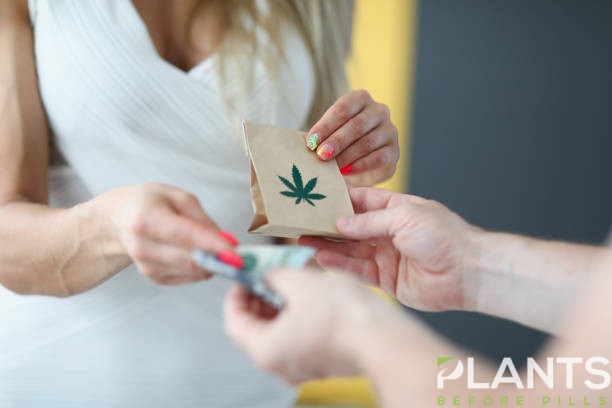
The world of cannabis consumption has shifted dramatically over the past decade, transforming from a once-restricted market to an industry driven by innovation, convenience, and customer satisfaction. As consumer expectations continue to evolve, many people now seek streamlined services that fit effortlessly into their fast-paced lives. The introduction of refined delivery systems has become a defining factor in shaping this new landscape, especially for customers who value time efficiency and reliable service. This transformation has given rise to a marketplace where high-quality products and fast service define the modern cannabis experience. In many regions the integration of advanced ordering platforms and professional service providers has reshaped how customers discover and enjoy their preferred strains. The growth of solutions like surrey weed delivery plays a crucial part in this shift, giving people better access to their favorite items without unnecessary complications.
Understanding Customer Preferences in a Fast-Growing Market
As customer preferences branch into diverse categories including edibles, concentrates, flowers, and wellness-oriented products, businesses must adapt to serve these changing needs effectively. The cannabis consumer of today is not merely shopping for convenience; they want transparency, product knowledge, and professional handling from start to finish. Many customers prefer browsing online because it allows them to review descriptions, potencies, and effects before making a purchase. The increasing demand for reliable logistics is why surrey weed delivery systems have become an essential component of the purchasing experience. Whether a customer seeks recreational enjoyment or therapeutic relief, the ability to have products brought directly to their home fosters a sense of trust and dependability. As more consumers become educated about the variety of cannabis products available, they expect suppliers to maintain consistent quality and service standards.
The Expansion of Local Cannabis Services
Local cannabis markets have broadened significantly, offering customers an impressive range of products sourced from reputable growers and manufacturers. With an ever-growing list of strains and formulations, these markets focus on aligning product quality with customer satisfaction. Businesses that prioritize transparency and quality testing gain more loyalty from users who value authenticity. The seamless nature of modern ordering systems ensures that customers can explore different options at their own pace. A strong emphasis on customer service ensures that every step from browsing to receiving an order is smooth and dependable. This level of accessibility is amplified through services like surrey weed delivery, which allow residents to enjoy premium selections without leaving the comfort of their homes.
Enhancing User Confidence Through Trustworthy Platforms
As the industry expands, customers seek out platforms that ensure secure transactions, accurate product details, and discreet service. Trustworthy platforms cultivate user confidence by offering reliable customer support, authenticated product sourcing, and real-time order tracking. These innovations contribute to an improved shopping experience that prioritizes consumer safety. Ensuring that all products meet regulatory standards builds credibility for businesses and reassures customers about what they are purchasing. The efficiency and professionalism that define surrey weed delivery help strengthen this trust even further.
Why Convenience Matters More Than Ever
Convenience has become one of the most important values for consumers, particularly for those balancing demanding lifestyles. The ability to order cannabis products from a smartphone or computer and have them delivered quickly transforms the experience into something accessible and stress-free. This efficiency is particularly helpful for individuals who may have mobility limitations, tight schedules, or simply prefer maintaining privacy during their purchases. In many communities, accessible service models have created new expectations around speed and reliability. As these services continue to refine their operations, customers can expect faster delivery windows and more personalized options. The consistency of surrey weed delivery helps reinforce the importance of convenience as a central element of modern cannabis consumption.
Streamlining the Ordering Experience
For many consumers, the journey begins the moment they open an online store and start exploring product categories. A well-designed platform with simple navigation enhances the process by allowing customers to find what they need quickly. Detailed descriptions and user reviews play an integral role in shaping purchasing decisions. Digital integration also makes it easier for customers to re-order their favorite items, benefit from ongoing promotions, or access curated recommendations. The delivery component, especially with services like surrey weed delivery, completes this journey by offering an efficient and predictable arrival time.
The Benefits of Local Expertise
Local cannabis providers often possess a deep understanding of community preferences, regional trends, and the types of products that resonate most with customers. Their expertise helps consumers make informed decisions that align with their specific needs. Knowledgeable staff can offer guidance on potency levels, terpene profiles, and desired effects, strengthening the relationship between consumer and provider. This personalized approach encourages customers to explore new products with confidence. Many people find value in having a trusted source that offers consistent quality and familiar brands. Local expertise also ensures that surrey weed delivery can connect customers with products ideally suited to their lifestyle and wellness goals.
Improving Accessibility for All Consumers
Accessibility is a fundamental advantage of professional cannabis delivery services. For individuals who prefer discretion or who cannot easily visit a physical store, delivery becomes an indispensable option. Companies continue to refine their service models to ensure that customers. Experience fewer barriers and more freedom in choosing how they shop. By prioritizing fast response times, easy communication, and user-friendly interfaces. Service providers create a system where convenience extends to all consumers. This evolution is reflected in how effectively surrey weed delivery caters to a broad range of customer needs across the region.
Conclusion
The modern cannabis marketplace thrives on innovation, customer trust, and seamless access to quality products. As consumers increasingly prioritize convenience, transparency, and on-demand service. The rise of solutions like surrey weed delivery continues to shape the industry’s direction. With knowledgeable local providers, evolving digital platforms, and a strong commitment to customer satisfaction. The cannabis experience becomes more personalized and reliable than ever before. This ongoing transformation not only enhances product accessibility but also empowers customers. To explore and enjoy cannabis in a way that aligns perfectly with their lifestyle and preferences.
Medical Disclaimer:
The information provided in these blog posts is intended for general informational and educational purposes only. It is not a substitute for professional medical advice, diagnosis, or treatment. Always seek the advice of your physician or other qualified healthcare provider with any questions you may have regarding a medical condition. The use of any information provided in these blog posts is solely at your own risk. The authors and the website do not recommend or endorse any specific products, treatments, or procedures mentioned. Reliance on any information in these blog posts is solely at your own discretion.
Cannabis 101
How to Buy Terpenes Online: A Complete Guide

Terpenes are naturally occurring compounds found in plants, especially in herbs, fruits, and cannabis. They are responsible for the unique aromas and flavors of plants and play a significant role in the overall experience of using plant-based products. Terpenes are not just about scent and taste; they also offer potential therapeutic benefits, including relaxation, mood enhancement, and anti-inflammatory effects. With growing interest in wellness, aromatherapy, and cannabis-related products, many consumers are looking for ways to integrate terpenes into their routines. One of the most convenient options available today is to buy terpenes online.
Buying terpenes online allows users to explore a wide range of strains, flavors, and purity levels. It provides access to high-quality products without the need to visit physical stores. Moreover, online shopping for terpenes gives users the flexibility to compare prices, read customer reviews, and select products suited to specific needs.
Understanding Different Types of Terpenes
When you decide to buy terpenes online, it is essential to understand the various types available. Common terpenes include limonene, pinene, myrcene, linalool, and caryophyllene. Each terpene has a unique scent and potential benefits. Limonene offers citrusy aromas and may promote mood elevation. Pinene smells like pine and is believed to support alertness and respiratory health. Myrcene has an earthy scent and is often associated with relaxation. Linalool has floral notes and may help with stress relief and calmness. Caryophyllene, with a spicy aroma, may support anti-inflammatory responses. By understanding these differences, you can make informed choices when you buy terpenes online.
How to Select Quality Terpenes Online
Quality is a critical factor when buying terpenes online. Look for vendors that provide lab-tested products to ensure purity and safety. Lab reports can confirm the absence of contaminants, residual solvents, and other impurities. It is also important to consider the source of the terpenes. Organic and sustainably sourced terpenes tend to have higher quality and better consistency. Read product descriptions carefully to understand whether the terpenes are isolate forms, blends, or full-spectrum. Trusted vendors often offer detailed information about extraction methods, terpene concentration, and suggested uses. Choosing reputable sellers ensures you receive products that deliver the intended aroma, flavor, and potential therapeutic effects.
Using Terpenes Safely at Home
Once you buy terpenes online, understanding safe usage is essential. Terpenes are highly concentrated and should be handled with care. Always follow dosage recommendations and dilute terpenes properly before use. They can be added to vape liquids, diffusers, topical products, or edibles depending on the intended application. Avoid ingesting undiluted terpenes directly, as this can cause irritation. Additionally, keep terpenes in airtight containers away from direct sunlight and heat to preserve their potency and aroma. Proper storage and handling maximize the benefits of terpenes while minimizing potential risks.
Creative Applications for Terpenes
Terpenes are incredibly versatile. Aromatherapy enthusiasts can diffuse them in essential oil diffusers to create a relaxing or invigorating environment. For cannabis enthusiasts, terpenes enhance flavor profiles and customize experiences. They can be incorporated into lotions, balms, and massage oils to add scent and potential therapeutic effects. Some users even combine specific terpenes to create personalized blends for relaxation, focus, or energy. The ability to experiment and combine different terpenes safely makes them appealing for creative and wellness-focused applications. Buying terpenes online expands your access to diverse options and simplifies experimentation with new blends.
Tips for a Smooth Online Purchase
When you buy terpenes online, there are practical considerations to ensure a smooth experience. Compare different vendors and read customer reviews to assess product quality and service reliability. Check shipping policies and delivery times to ensure timely arrival. Many online retailers provide guidance on storage, usage, and blending, which is especially helpful for beginners. Consider starting with smaller quantities to test different types before committing to larger purchases. Using these tips helps you navigate the online terpene market confidently and safely.
Cost Considerations and Value
Terpenes vary in price depending on type, purity, and concentration. While it may be tempting to choose the cheapest option, prioritizing quality ensures better results and safety. Lab-tested terpenes from reputable vendors may cost more but offer peace of mind. Bundled options or starter kits are often available, providing multiple terpene types at reasonable prices. By balancing cost with quality, you can make informed purchasing decisions and maximize the value of your online terpene investments.
FAQs
Are terpenes safe to use in edibles and topicals?
Yes, terpenes can be safely used in edibles, topical creams, and other applications when properly diluted. Follow dosage instructions and product guidelines to avoid irritation or excessive concentration.
How do I know if the terpenes I buy online are pure?
Reputable sellers provide lab reports and third-party testing results. Look for products with detailed information about extraction methods and absence of contaminants.
Can terpenes enhance the flavor of cannabis products?
Yes, terpenes are responsible for unique flavors and aromas in cannabis. Adding terpenes can customize taste and aroma experiences.
What is the best way to store terpenes?
Store terpenes in airtight containers away from sunlight, heat, and humidity. Proper storage preserves potency and flavor for extended periods.
How much terpene should I use in a blend?
Dosage depends on the application. Always start with minimal amounts and adjust gradually, ensuring the concentration is safe and effective for your intended use.
Conclusion
Terpenes are versatile, aromatic compounds that can enhance flavor, aroma, and wellness applications. Buying terpenes online offers convenience, variety, and access to high-quality products that may not be available locally. By understanding the different types, selecting reputable vendors, and using terpenes safely, you can maximize their benefits in aromatherapy, cannabis, and other creative projects. With careful attention to quality and proper handling, terpenes provide a unique and customizable experience for beginners and enthusiasts alike. By exploring the wide range of options available online, you can create personalized blends, elevate your wellness routines, and enjoy the aromatic and potential therapeutic properties of these fascinating compounds. The ability to buy terpenes online opens doors to creativity, experimentation, and wellness-focused experiences that are accessible to everyone.
Medical Disclaimer:
The information provided in these blog posts is intended for general informational and educational purposes only. It is not a substitute for professional medical advice, diagnosis, or treatment. Always seek the advice of your physician or other qualified healthcare provider with any questions you may have regarding a medical condition. The use of any information provided in these blog posts is solely at your own risk. The authors and the website do not recommend or endorse any specific products, treatments, or procedures mentioned. Reliance on any information in these blog posts is solely at your own discretion.
Cannabis Business
Why Visiting a Local Dispensary Is the Best Way to Experience Cannabis in Massachusetts
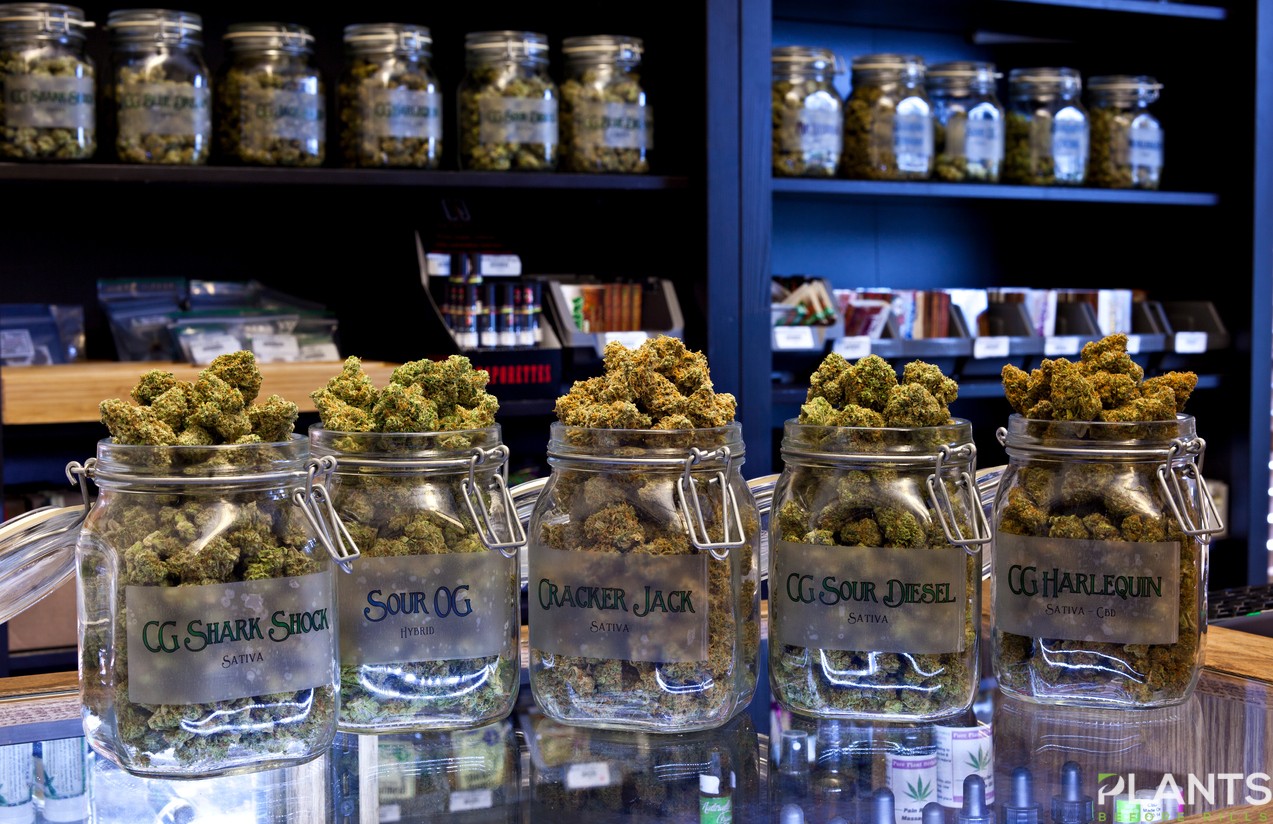
It starts with a simple drive on a sunny afternoon. You pull up directions for a dispensary near me and find yourself cruising through small-town Massachusetts roads lined with old oaks and weathered barns. The air smells like freedom mixed with curiosity—you’re not sure what to expect, but you’re ready to find something that feels genuine. When you walk through the door, the earthy scent of fresh flower and the quiet hum of conversation instantly tell you this is more than just a store—it’s a community hub for people who appreciate the craft of cannabis.
That’s what visiting a dispensary is all about—connection, discovery, and trust. Whether you’re a longtime enthusiast or a curious newcomer, there’s something special about stepping inside a space where cannabis culture comes alive. Online shopping might be convenient, but no amount of scrolling compares to seeing, smelling, and learning firsthand. Here’s why taking that short drive is always worth it.
You Get Expert Guidance—Not Guesswork
Let’s be honest: choosing cannabis products online can feel like throwing darts blindfolded. At a dispensary, though, you get to talk to real people who actually know their craft. Budtenders aren’t just employees—they’re cannabis educators. They’ve seen what works for different lifestyles, moods, and tolerance levels. They can help you pick the right flower strain, concentrate, or edible without the trial-and-error that often wastes both time and money.
Plus, they listen. Whether you want something relaxing for evenings, energizing for creativity, or balanced for focus, dispensary staff are there to help you find that perfect fit. And because they hear feedback from customers daily, their recommendations come from real experiences, not marketing jargon.
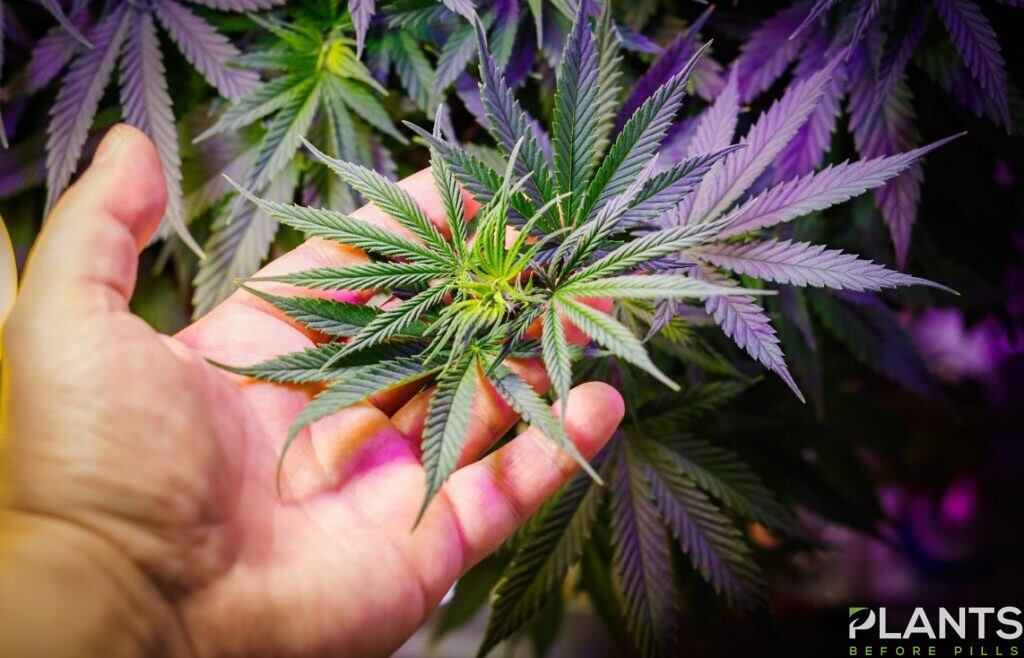
Freshness, Flavor, and Full Transparency
Buying cannabis from a licensed dispensary means every product has been tested for quality, safety, and potency. That means no hidden ingredients, no questionable growing methods—just clean, reliable cannabis. You can see where it came from, how it was grown, and what makes it special.
Dispensaries often highlight local cultivators that take pride in sustainable farming practices. For example, a cannabis farm based in Massachusetts like Regenerative focuses on sun-grown plants cultivated in living soil, creating products rich in terpenes and flavor without the environmental toll of indoor grows. When you shop local, you’re not just buying cannabis—you’re supporting a movement built on responsibility and respect for the earth.
It’s an Experience, Not Just a Transaction
Walking into a dispensary can feel like entering a coffee shop for the first time—you instantly notice the vibe. Some are bright and modern; others feel cozy and earthy. But what they all share is a sense of community. People aren’t rushing in and out; they’re chatting, asking questions, comparing notes, and discovering new products together.
That face-to-face experience brings a level of trust that online menus can’t replicate. You get to see the flower up close, read the labels, and maybe even catch a whiff of something new that piques your curiosity. It’s the human side of cannabis—where passion meets purpose.
Supporting Local Means Supporting Growth
When you choose a dispensary that sources from local cultivators, your dollars stay in Massachusetts. That’s huge for the local economy. You’re helping independent growers and manufacturers thrive in an industry that often favors big corporations.
Take Regenerative, for instance—a company committed to growing cannabis sustainably while keeping prices fair. Their sun-grown approach cuts energy costs and preserves soil health, allowing them to produce potent, flavorful flower without breaking the bank. Supporting businesses like this keeps the state’s cannabis industry diverse, ethical, and deeply rooted in the community.
Discover What You’ve Been Missing
Let’s face it: cannabis has come a long way. Gone are the days of mystery strains and vague promises. Dispensaries today are places of learning and appreciation. You can explore everything from solventless extracts to terpene-rich flower, each offering its own experience. And because dispensaries rotate their stock, there’s always something new to try.
Think of it like a farmer’s market for cannabis—fresh, seasonal, and grown with care. You walk in with curiosity and walk out with knowledge (and maybe a new favorite product). That sense of discovery keeps people coming back again and again.
Convenience Meets Confidence
Sure, typing “dispensary near me” into Google might be how it starts, but once you find the right one, it becomes part of your routine. Many dispensaries offer online pre-orders for pickup, so you can browse at your own pace and still enjoy the in-person experience. It’s the best of both worlds—convenience with the confidence that comes from knowing exactly what you’re getting.
And there’s something reassuring about buying from a place that stands behind its products. You can ask questions, get honest answers, and feel good about what you’re putting into your body.
Wrapping It Up
The next time you’re tempted to order from an app or drive past your local shop, stop in. Talk to the staff, learn about the products, and feel the energy that comes from people who genuinely care about cannabis. You’ll leave with more than just a product—you’ll leave with knowledge, confidence, and maybe even a new favorite strain grown under the Massachusetts sun.
After all, cannabis is meant to be experienced, not just consumed. So, when was the last time you visited your local dispensary?
Medical Disclaimer:
The information provided in these blog posts is intended for general informational and educational purposes only. It is not a substitute for professional medical advice, diagnosis, or treatment. Always seek the advice of your physician or other qualified healthcare provider with any questions you may have regarding a medical condition. The use of any information provided in these blog posts is solely at your own risk. The authors and the website do not recommend or endorse any specific products, treatments, or procedures mentioned. Reliance on any information in these blog posts is solely at your own discretion.
Cannabis 101
The Complete Guide to Buy Hemp Seeds for Cultivation and Wellness
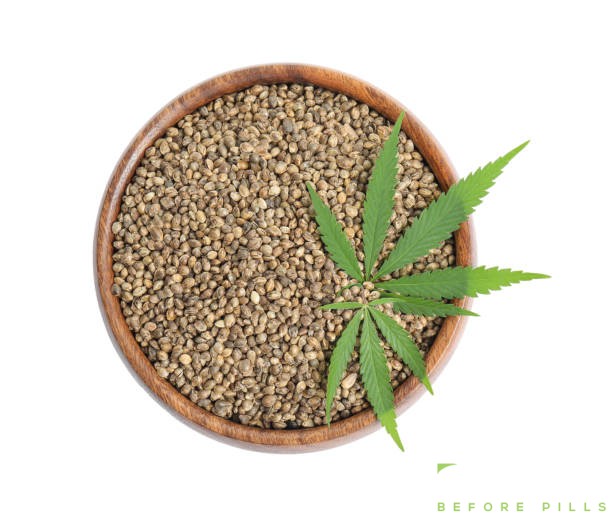
Hemp has been cultivated for thousands of years, valued for its versatility, nutrition, and industrial uses. At the heart of every hemp crop lies the seed, which provides the foundation for everything from oils and fibers to health supplements and protein powders. As global interest in hemp continues to expand, more individuals and businesses are choosing to Kenevir tohumu satın al to grow their own crops or incorporate them into their wellness routines. Understanding the qualities of these seeds and how to select the right type is the first step toward making the most of what hemp has to offer.
Why Hemp Seeds Matter
Hemp seeds are small, yet they hold immense potential. Nutritionally, they are packed with protein, healthy fats, vitamins, and minerals, making them a popular choice among people looking for natural ways to improve their diets. They can be eaten raw, roasted, or pressed into oil. Beyond nutrition, hemp seeds play a crucial role in agriculture and industry. They are used to grow hemp plants that provide raw materials for textiles, paper, eco-friendly plastics, and even construction materials. The decision to buy hemp seeds goes beyond personal use—it is also a step toward supporting sustainable and eco-conscious farming practices.
Choosing the Right Hemp Seeds
Selecting high-quality hemp seeds can make a major difference in outcomes, whether for home growing or commercial purposes. Reliable seeds should come from reputable sources and carry information about their origin, genetics, and intended use. Some seeds are specifically bred for high nutritional content, while others focus on fiber production or cannabinoid balance. When you Kenevir tohumu satın al, it is important to match your goals with the right seed type. For example, cultivators aiming for dietary hemp products may prioritize seeds with superior oil and protein content, while industrial growers focus on varieties with long, durable fibers.
The Germination Process
Once you have chosen your seeds, the next step is germination, which marks the beginning of plant growth. Hemp seeds require moisture, warmth, and oxygen to sprout successfully. Many growers start seeds indoors to control conditions and then transplant them outdoors once they are strong enough. The germination stage sets the tone for the plant’s entire lifecycle, which is why using high-quality seeds makes a noticeable difference. When you buy hemp seeds from trusted providers, you typically benefit from higher germination rates and more consistent plant development.
Indoor vs Outdoor Cultivation
One of the biggest decisions growers face is whether to cultivate hemp indoors or outdoors. Indoor cultivation offers complete control over environmental factors such as light, temperature, and humidity, allowing for year-round production and consistent yields. However, it requires significant investment in equipment and energy. Outdoor cultivation, on the other hand, relies on natural sunlight and often results in larger plants with more extensive yields, but it depends heavily on climate and weather. Hemp seeds can adapt to both environments, but the best choice depends on the grower’s resources, goals, and local conditions.
Nutritional Benefits of Hemp Seeds
Hemp seeds are considered a superfood because of their exceptional nutritional profile. They are rich in essential fatty acids, including omega-3 and omega-6, which support heart and brain health. Their high protein content makes them a great addition to vegetarian and vegan diets, while vitamins and minerals such as magnesium, zinc, and iron contribute to overall wellness. Many people buy hemp seeds not just for cultivation but also for direct consumption, incorporating them into smoothies, salads, baked goods, and protein powders. Their nutty flavor makes them versatile and appealing across different cuisines.
Industrial Applications of Hemp
Beyond their dietary benefits, hemp seeds are central to a wide range of industrial uses. Once grown, hemp plants produce strong fibers that can be transformed into textiles, ropes, and building materials. Hemp oil, extracted from seeds, is used in skincare, cooking, and even eco-friendly paints. In recent years, the demand for sustainable alternatives has increased the popularity of hemp-based materials in industries such as packaging and construction. When individuals and businesses choose to buy hemp seeds, they are not only investing in their health but also contributing to sustainable innovations.
Challenges in Hemp Growing
While hemp is resilient, growing it successfully requires careful planning and attention. Pests, diseases, and soil conditions can affect plant growth. Water management is another crucial factor, as hemp requires consistent hydration but does not thrive in waterlogged soil. Quality seeds give growers an advantage by offering strong genetics and resistance to common challenges. Choosing to buy hemp seeds from trusted sources helps minimize risks and improves the chances of cultivating healthy, high-yield plants. Combining strong seeds with sustainable practices such as crop rotation and natural pest control ensures better results.
Sustainability and the Future of Hemp
One of the most compelling reasons for hemp’s rise in popularity is its environmental benefit. Hemp grows quickly, requires fewer pesticides compared to other crops, and contributes to soil health. It can be cultivate on a large scale without depleting natural resources. Hemp products also provide eco-friendly alternatives to plastics, fabrics, and construction materials, making the crop vital in efforts toward greener economies. By choosing to buy hemp seeds, individuals and organizations are directly supporting sustainable agriculture and helping reduce reliance on harmful, non-renewable resources.
FAQs
Are hemp seeds safe to eat?
Yes, hemp seeds are highly nutritious and safe for consumption. They are widely use in food products such as protein powders, oils, and snacks.
Can I grow hemp at home after purchasing seeds?
It depends on local laws and regulations. Always check whether hemp cultivation is permit in your area before planting.
What is the difference between hemp seeds and marijuana seeds?
Hemp seeds grow plants with very low levels of THC, making them suitable for industrial and nutritional use, while marijuana seeds are bred for higher cannabis content.
How long can hemp seeds be store?
When kept in cool, dry conditions away from light, hemp seeds can remain viable for several years without losing nutritional value.
Conclusion
Hemp continues to stand out as one of the most versatile and sustainable plants in modern agriculture. From nutrition to industrial applications, it offers countless opportunities for individuals and businesses. At the heart of this potential lies the choice of strong and reliable seeds. When you buy hemp seeds, you are investing not only in your own health and productivity but also in a crop that promotes environmental responsibility. By pairing quality seeds with careful cultivation, hemp growers can unlock the full potential of this remarkable plant and contribute to a healthier, greener future.
Author Bio:
This article was written by Laura Mitchell, a writer and researcher passionate about sustainable farming and hemp innovation. She shares insights through KushSeed, a trusted source for premium seed selections and cultivation knowledge. Visit KushSeed to discover more resources and explore how quality seeds can make a difference in your growing journey.
Medical Disclaimer:
The information provided in these blog posts is intended for general informational and educational purposes only. It is not a substitute for professional medical advice, diagnosis, or treatment. Always seek the advice of your physician or other qualified healthcare provider with any questions you may have regarding a medical condition. The use of any information provided in these blog posts is solely at your own risk. The authors and the website do not recommend or endorse any specific products, treatments, or procedures mentioned. Reliance on any information in these blog posts is solely at your own discretion.
Cannabis 101
Guide to Growing Cannabis in Pots Successfully
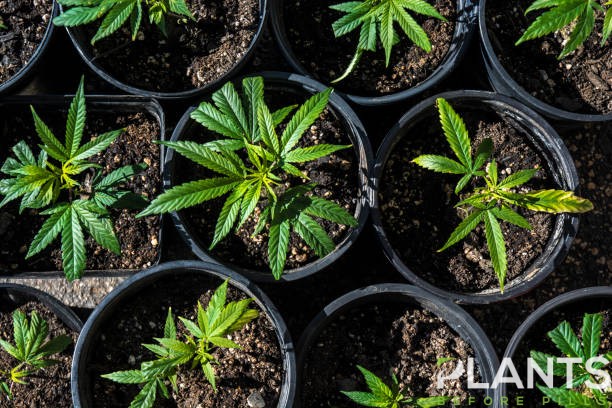
For many people cultivating plants is more than just a hobby it is a way to connect with nature and understand the life cycle of growth and renewal. Saksıda Kenevir Büyütme has become a popular choice because it offers flexibility and control over the environment even in limited spaces. Whether you are new to cultivation or have some experience this method allows you to enjoy gardening with more convenience while managing plant health effectively. Brands like yesiloda provide valuable insights and reliable resources to support cultivators at every stage of the journey.
Why Choose Pots for Cultivation
Using pots for cannabis cultivation is ideal for growers who may not have access to large outdoor plots or specialized indoor grow rooms. Pots allow you to move your plants when necessary whether to capture more sunlight avoid pests or adjust to seasonal changes. This level of control is especially beneficial for beginners who are still learning about the unique needs of cannabis plants. By selecting the right container size and material you can influence root health nutrient absorption and ultimately the quality of the harvest.
Selecting the Right Pots
The choice of pot directly impacts plant development. Fabric pots are often preferred because they allow air to penetrate the soil which promotes stronger root systems and prevents overwatering. Plastic pots are more affordable and easier to find but they can sometimes restrict airflow and require careful drainage management. Clay or terracotta pots offer natural breathability but are heavier and less mobile. Choosing the right size is equally important since small pots limit growth while larger ones support stronger root expansion and higher yields.
Soil Mix and Nutrient Balance
Healthy soil is the foundation for any successful grow. A well draining soil rich in organic matter supports healthy roots and steady growth. Many growers enhance their soil with perlite vermiculite or coco coir to improve aeration and moisture retention. Nutrient balance is also critical. Nitrogen supports leafy growth in the vegetative stage while phosphorus and potassium are essential during flowering. Using slow release organic fertilizers can simplify feeding schedules while ensuring plants get everything they need at the right time.
Watering Strategies
When Saksıda Kenevir Büyütme watering is one of the most important tasks to manage carefully. Pots dry out faster than garden beds meaning growers must check moisture levels regularly. Overwatering is a common mistake and can suffocate roots or encourage root rot. On the other hand underwatering stresses the plant and reduces growth potential. A simple rule is to water thoroughly and then wait until the top inch of soil feels dry before watering again. Drainage holes in pots are essential to maintain proper moisture balance.
Light and Temperature Management
Cannabis plants thrive on consistent light cycles. For indoor growers high quality LED or HID lamps can simulate natural sunlight while also being adjustable for different growth stages. Outdoor growers should place pots where they receive at least six hours of direct sunlight daily. Temperature is another factor to control. Ideal conditions range between 20 to 28 degrees Celsius during the day with slightly cooler nights. Extreme heat can stress plants while cold temperatures slow down growth so moving pots accordingly helps maintain stability.
Training Techniques for Potted Plants
One advantage of container growing is the ability to implement training methods more easily. Techniques like low stress training topping or pruning help maximize light exposure and encourage bushier growth. Since space in pots is limited these strategies prevent plants from becoming too tall and unmanageable. By shaping the plant structure growers can enhance yields and create healthier more balanced plants that make the most of their container environment.
Common Challenges in Pot Growing
While Growing Cannabis in Pots has many benefits it also comes with unique challenges. Limited soil volume means plants can outgrow their containers quickly leading to root bound conditions. Regularly checking roots and transplanting to larger pots when necessary prevents this issue. Another challenge is nutrient buildup which can occur when salts from fertilizers accumulate in the soil. Flushing pots with plain water every few weeks can help reset the balance and keep plants healthy.
Harvesting and Post Harvest Care
When buds mature and trichomes reach their peak color it is time to harvest. Cutting branches and trimming excess leaves is the first step. Drying the harvest in a dark ventilated space preserves potency and prevents mold. Once dried curing in airtight jars for several weeks enhances aroma flavor and smoothness. Growing Cannabis in Pots does not end at harvest the curing stage is just as important to ensure a high quality final product.
FAQs
Can cannabis plants grow in small pots?
Yes but small pots limit root space and plant size so larger pots are recommended for better yields.
How often should I water potted cannabis?
Water when the top inch of soil feels dry ensuring pots have proper drainage to prevent root rot.
What pot size is best for beginners?
A 5 to 7 gallon pot is ideal for beginners as it balances manageability with enough space for healthy root growth.
Do potted cannabis plants need different nutrients than garden grown ones?
No the nutrient needs are the same but pots may require more frequent monitoring due to limited soil volume.
Conclusion
Container growing is an accessible and rewarding way to cultivate cannabis. It gives growers the ability to manage conditions more closely move plants when needed and achieve strong results even in small spaces. With the right pots soil nutrients and care strategies growers can achieve consistent harvests and high quality results. By learning about the unique aspects of Growing Cannabis in Pots anyone can transform their home environment into a thriving garden. Support from reliable sources such as yesiloda ensures growers have the tools and knowledge to succeed at every step.
Author Bio
This article was written by Leyla Demir, a cultivation enthusiast and writer dedicated to sharing practical growing tips. With experience in yesiloda Leyla helps readers discover effective strategies for successful cannabis growth. To explore more insights and resources visit the website today.
Medical Disclaimer:
The information provided in these blog posts is intended for general informational and educational purposes only. It is not a substitute for professional medical advice, diagnosis, or treatment. Always seek the advice of your physician or other qualified healthcare provider with any questions you may have regarding a medical condition. The use of any information provided in these blog posts is solely at your own risk. The authors and the website do not recommend or endorse any specific products, treatments, or procedures mentioned. Reliance on any information in these blog posts is solely at your own discretion.
Cannabis 101
The Complete Guide to Growing Marijuana Tohumsuz
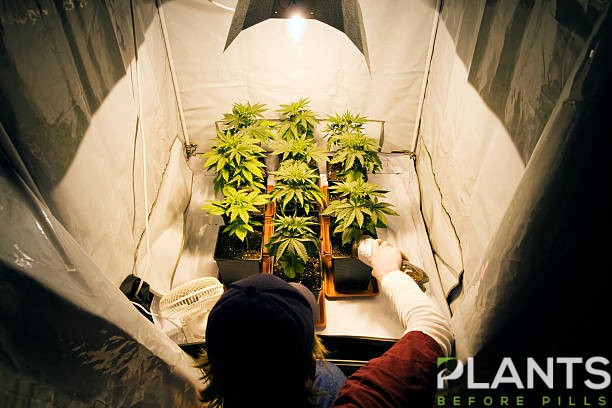
The cultivation of cannabis has moved far beyond being an underground hobby and has now become an industry with enormous potential. Many enthusiasts are interested in understanding the right methods to grow cannabis successfully while ensuring quality and safety. Whether you are a beginner or an experienced grower, there are essential factors to consider when Esrar yetiştirme that can greatly impact your results. With reliable guidance and support from companies like Tohumsuz, people can explore sustainable and effective cultivation practices that bring both enjoyment and productivity.
Understanding the Basics of Cultivation
Before diving into the practical steps, it is important to grasp the fundamentals. Cannabis plants thrive in specific environments where temperature, light, soil, and nutrients are properly balanced. Esrar yetiştirme requires patience, observation, and consistency. Each stage of the plant’s life cycle demands a different approach, from germination and vegetative growth to flowering and harvesting. With the right foundation, you can ensure healthier plants and maximize yields while avoiding common pitfalls that new growers often face.
Choosing the Right Location for Cultivation
The place where you grow plays a critical role in the final outcome. Some people prefer indoor setups because they offer more control over light, humidity, and temperature. Others choose outdoor growing due to natural sunlight and lower setup costs. Indoor environments may need specialized equipment like grow lights, fans, and ventilation systems to replicate ideal natural conditions. Outdoor cultivation, on the other hand, can expose plants to weather fluctuations and pests, so selecting a safe and secure outdoor area is crucial. Tohumsuz provides guidance on evaluating your space and setting it up in a way that promotes optimal plant development.
Soil and Nutrient Requirements
Soil quality is one of the strongest determining factors for cannabis health. The plant requires a soil mix that drains well but retains enough moisture to sustain root growth. Adding organic matter can enrich the soil and support beneficial microorganisms. Cannabis also requires balanced nutrients, including nitrogen, phosphorus, and potassium, along with trace minerals. A deficiency or excess of these nutrients can lead to growth issues, which is why monitoring pH levels and nutrient ratios is essential. Tohumsuz emphasizes the importance of soil testing to ensure you are providing the right foundation for your crop.
Lighting Essentials for Indoor Growth
For indoor cultivation, lighting is the heart of the operation. Cannabis needs ample light to carry out photosynthesis and develop strong, healthy buds. Different growth phases require varying light cycles, such as extended daylight hours for vegetative growth and reduced light periods for flowering. Modern growers often use LED lights due to their efficiency, low heat output, and energy savings. Proper light placement ensures that plants grow evenly without stretching or weakening. By understanding light intensity and spectrum, growers can create environments where their cannabis plants flourish consistently.
Watering and Climate Control
Water is essential but must be used wisely. Overwatering can suffocate the roots, while underwatering causes dehydration and stress. Climate control also plays a significant role in preventing mold and disease. Maintaining the right humidity and temperature levels creates a stable environment where plants are less vulnerable to external threats. Fans and air circulation systems can reduce hotspots and distribute CO2 evenly. This ensures plants remain strong and resilient throughout their growth cycle.
Pest and Disease Prevention
One of the biggest challenges for cannabis growers is managing pests and diseases. Common threats include spider mites, aphids, powdery mildew, and root rot. Preventive care, rather than reactive measures, is the best approach. Using natural pest control methods and keeping the growing environment clean reduces risks. Regular inspections help catch early signs of infestation before they become serious. Tohumsuz supports growers by offering safe and reliable pest management strategies that prioritize both the plant’s health and the environment.
Harvesting and Curing
Knowing when to harvest is just as important as the growing process itself. Harvesting too early may reduce potency, while harvesting too late can affect the flavor and effects. Typically, growers look for visual cues such as the color of trichomes and pistils. After harvesting, curing becomes essential to enhance flavor, smoothness, and overall quality. This process involves drying buds slowly in a controlled environment before sealing them in jars for further curing. A well-cured product is richer in aroma and potency, delivering the best possible experience.
The Role of Professional Guidance
Although growing marijuana can be learned through trial and error, professional support often makes the journey smoother and more rewarding. Companies like Tohumsuz provide resources and consultation that help growers avoid costly mistakes. They assist in setting up cultivation systems, choosing equipment, and implementing best practices. With expert advice, growers are more likely to achieve consistent yields and healthier plants without the frustration of repeated failures.
FAQs
What is the best temperature for cannabis cultivation?
The ideal temperature range is generally between 70 and 85 degrees Fahrenheit during the day and slightly cooler at night.
How long does it take for cannabis to grow?
The growth cycle can last from three to five months depending on the strain, growing conditions, and whether it is cultivated indoors or outdoors.
Can I grow cannabis without specialized equipment?
Yes, cannabis can be grown outdoors without equipment, but using indoor setups with proper lighting and ventilation can improve quality and yield.
How do I know when to harvest?
Harvest time is usually identified by observing the trichomes and pistils on the buds. Cloudy trichomes often indicate peak potency.
Conclusion
The process of cultivating cannabis is a rewarding journey that requires dedication, observation, and knowledge. From preparing the soil and managing nutrients to ensuring proper lighting and climate control, every detail contributes to success. With the assistance of Tohumsuz, growers can access reliable support and expertise that guide them through each stage. By applying these methods carefully, enthusiasts and professionals alike can enjoy healthy plants and quality harvests while building confidence in their cultivation skills.
Author Bio
Written by Daniel Reyes, a passionate cultivator and content writer with experience in cannabis growth and horticultural practices. He shares insights for enthusiasts through Tohumsuz, encouraging readers to explore more resources and expert guidance available on the website.
Medical Disclaimer:
The information provided in these blog posts is intended for general informational and educational purposes only. It is not a substitute for professional medical advice, diagnosis, or treatment. Always seek the advice of your physician or other qualified healthcare provider with any questions you may have regarding a medical condition. The use of any information provided in these blog posts is solely at your own risk. The authors and the website do not recommend or endorse any specific products, treatments, or procedures mentioned. Reliance on any information in these blog posts is solely at your own discretion.
Cannabis 101
Exploring the Powerful Profile of Sour Diesel Terpenes: Aroma, Effects, and Uses

Sour Diesel, often abbreviated as Sour D, is a sativa-dominant strain that has become a legend in the cannabis world. With roots tracing back to Chemdawg 91 and Super Skunk, this strain has earned its reputation thanks to its energizing effects, pungent aroma, and long-lasting cerebral high. But what truly defines Sour Diesel is its rich terpene profile, which plays a major role in its distinctive smell, flavor, and overall impact. Terpenes are the natural compounds found in many plants, including cannabis, that contribute to aroma and flavor. When it comes to Sour Diesel terpenes, they not only give this strain its characteristic fuel-like scent but also influence how it interacts with the body and mind.
The Most Prominent Terpenes in Sour Diesel
The terpene profile of Sour Diesel is both complex and highly potent. The top terpenes typically found in this strain include myrcene, limonene, caryophyllene, pinene, and humulene. Each of these terpenes plays a unique role. Myrcene, often the most dominant in Sour Diesel, contributes to its musky and earthy base. Limonene brings in a sharp citrus twist, while caryophyllene adds a peppery undertone and may have anti-inflammatory properties. Pinene, as the name suggests, adds a piney freshness that supports alertness and memory. Finally, humulene brings a subtle herbal quality to the mix, enhancing both aroma and potential wellness benefits. Together, these terpenes create the signature Sour Diesel experience a pungent, slightly sweet, diesel-like aroma with a sharp citrus kick that lingers.
Aroma and Flavor of Sour Diesel Terpenes
The smell of Sour Diesel is unmistakable and often described as sharp, skunky, and fuel-heavy, with subtle citrus notes that cut through the dense earthy scent. This powerful aroma is largely attributed to the synergy of its terpene profile. When smoked or vaporized, the flavor is just as intense, often delivering a smooth yet tangy taste with lingering fuel notes on the exhale. For many cannabis enthusiasts, this flavor is an acquired taste but once appreciated, it becomes a hallmark of quality. The distinctive combination of these terpenes not only defines the sensory profile of the strain but also contributes to the entourage effect, enhancing the overall experience in ways beyond THC content alone.
Therapeutic Effects and Benefits of Sour Diesel Terpenes
Beyond aroma and flavor, the Sour Diesel terpene profile contributes significantly to the effects users experience. This strain is celebrated for its energizing, uplifting, and focus-enhancing qualities, making it a go-to for daytime use or creative tasks. Limonene and pinene, in particular, are believed to promote mood elevation and alertness. Myrcene, though typically known for its sedative effects, balances out the sharper terpenes to create a smooth but motivating experience. Some users turn to Sour Diesel for relief from stress, depression, and fatigue due to its energizing properties. The presence of caryophyllene may also provide anti-inflammatory benefits, making the strain potentially useful for those dealing with minor aches and pains. However, it’s important to note that everyone’s endocannabinoid system responds differently, and the effects of terpenes can vary from person to person.
How to Use and Enjoy Sour Diesel Terpenes
Sour Diesel terpenes can be experienced in multiple ways. For those who prefer flowers, sourcing a well-cured batch with strong aroma is key to getting the full spectrum of effects. Vaporizers are another excellent method, allowing you to taste the full terpene range without combustion. Concentrates and vape cartridges often contain enhanced levels of these terpenes, offering a more pronounced flavor. Additionally, isolated Sour Diesel terpenes can be used to infuse products like edibles, tinctures, or topicals. Some users even add drops of terpene extracts into essential oil diffusers or mix them with carrier oils for customized aromatherapy. When working with terpene isolates, it’s crucial to use them sparingly; they are highly concentrated and potent. Start low and go slow to find your preferred dose and method of enjoyment.
Sour Diesel Terpenes in the World of Extraction and Product Formulation
As the cannabis industry grows, product formulators and extractors have become increasingly interested in harnessing the power of terpenes to create more effective and appealing offerings. Sour Diesel terpenes, with their energetic and bold profile, are a favorite for developing products aimed at boosting focus or lifting mood. These terpenes are often reintroduce into vape pens, live resins, and other extracts to replicate the original strain’s full flavor and effect. Brands working with terpenes are also utilizing them in non-THC products like candles, bath bombs, and skincare items, leveraging their aromatic and potential therapeutic qualities. This widespread adoption shows how valuable terpenes have become beyond recreational use; they’re now an integral part of product innovation and consumer experience.
What Makes Sour Diesel Terpenes So Special?
Among countless strains, Sour Diesel stands out for the sheer boldness of its aroma and the consistency of its effects. It’s not just about smelling good; these terpenes interact with cannabinoids like THC and CBD to produce a synergistic response. This is often referre to as the entourage effect, where the combine impact of all plant compounds is greater than the sum of their parts. For this reason, many users report that Sour Diesel hits differently, offering a clearer, more cerebral high than other strains. It’s this unique combination of aroma, flavor, and effect that has helped it maintain its top-shelf reputation for decades. Whether you’re a cannabis connoisseur or a terpene enthusiast, exploring the nuances of Sour Diesel terpenes can elevate your understanding and appreciation of cannabis chemistry.
FAQs
What are Sour Diesel terpenes?
Sour Diesel terpenes are the natural aromatic compounds find in the Sour Diesel cannabis strain. These include myrcene, limonene, caryophyllene, and pinene, which collectively contribute to the strain’s distinct fuel-like aroma and energizing effects.
Do Sour Diesel terpenes get you high?
No, terpenes themselves don’t get you high. However, they can influence the overall experience by interacting with cannabinoids. In Sour Diesel, the terpene profile is believe to enhance the uplifting and focusing effects typically associated with the strain.
Can I buy Sour Diesel terpenes separately?
Yes, you can purchase Sour Diesel terpene isolates or blends from specialized terpene companies. These are often use for flavoring, aromatherapy, or enhancing cannabis products, but should always be use carefully due to their potency.
Are Sour Diesel terpenes safe to inhale or consume?
When sourced from reputable companies and used properly, Sour Diesel terpenes are generally safe for inhalation or consumption. However, they are highly concentrate and should be dilute before use in products like vape oils or edibles.
How should I store Sour Diesel terpenes?
To maintain potency and freshness, store Sour Diesel terpenes in a cool, dark place in a tightly sealed container. Exposure to heat, light, and air can degrade terpene quality over time.
Conclusion
Sour Diesel terpenes offer a unique blend of bold aroma, powerful effects, and versatile uses, making them a favorite among cannabis users, product developers, and aromatherapy enthusiasts alike. From enhancing mental clarity and mood to adding a sharp, memorable scent to various products, these terpenes deliver much more than just flavor. Whether you’re exploring cannabis for therapeutic purposes or simply enjoy the complex chemistry behind your favorite strains, understanding the role of terpenes, especially those in Sour Diesel opens up a new level of appreciation for this legendary plant.
Author Bio
Written by James Carter, a terpene specialist and cannabis writer with extensive experience in aromatic compound research at Mass Terpenes. James is passionate about educating readers on the science and benefits of terpenes. Visit Mass Terpenes to explore premium, strain-specific terpene products and learn more about how they can enhance your experience.
Medical Disclaimer:
The information provided in these blog posts is intended for general informational and educational purposes only. It is not a substitute for professional medical advice, diagnosis, or treatment. Always seek the advice of your physician or other qualified healthcare provider with any questions you may have regarding a medical condition. The use of any information provided in these blog posts is solely at your own risk. The authors and the website do not recommend or endorse any specific products, treatments, or procedures mentioned. Reliance on any information in these blog posts is solely at your own discretion.
Cannabis 101
The Future of vape hardware manufacturer: Innovation Quality and Compliance

Medical Disclaimer:
The information provided in these blog posts is intended for general informational and educational purposes only. It is not a substitute for professional medical advice, diagnosis, or treatment. Always seek the advice of your physician or other qualified healthcare provider with any questions you may have regarding a medical condition. The use of any information provided in these blog posts is solely at your own risk. The authors and the website do not recommend or endorse any specific products, treatments, or procedures mentioned. Reliance on any information in these blog posts is solely at your own discretion.
Cannabis Business
Benefits of Partnering with a Cannabis POS Provider
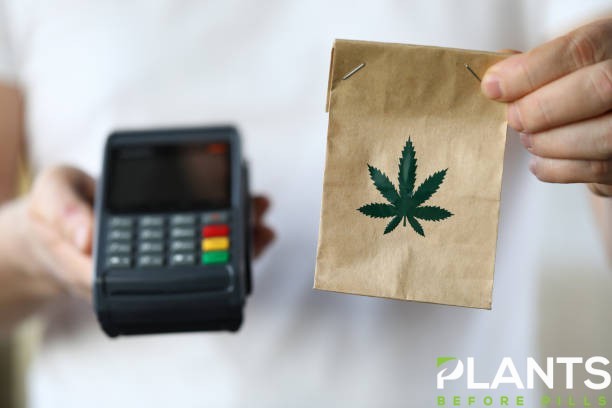
Medical Disclaimer:
The information provided in these blog posts is intended for general informational and educational purposes only. It is not a substitute for professional medical advice, diagnosis, or treatment. Always seek the advice of your physician or other qualified healthcare provider with any questions you may have regarding a medical condition. The use of any information provided in these blog posts is solely at your own risk. The authors and the website do not recommend or endorse any specific products, treatments, or procedures mentioned. Reliance on any information in these blog posts is solely at your own discretion.
-
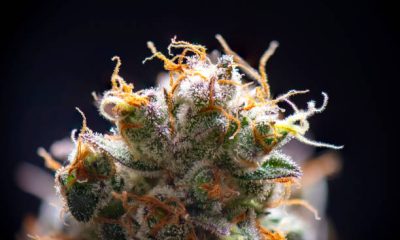
 Cannabis 1015 months ago
Cannabis 1015 months agoExploring the Powerful Profile of Sour Diesel Terpenes: Aroma, Effects, and Uses
-

 Videos5 months ago
Videos5 months agoLive Resin Explained: A Potent Cannabis Extract Guide
-

 Cannabis 1015 months ago
Cannabis 1015 months agoWhere to Find the Best Weed Stores in Calgary Without the Headache
-

 Cannabis 1015 months ago
Cannabis 1015 months agoThe Future of vape hardware manufacturer: Innovation Quality and Compliance
-

 General4 months ago
General4 months agoIntroduction to Buying Marijuana Seeds
-

 Cannabis Business5 months ago
Cannabis Business5 months agoBenefits of Partnering with a Cannabis POS Provider
-
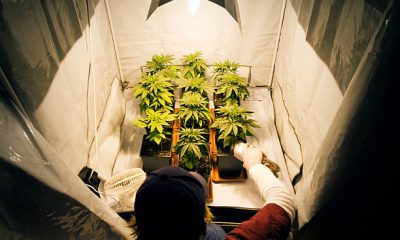
 Cannabis 1014 months ago
Cannabis 1014 months agoThe Complete Guide to Growing Marijuana Tohumsuz
-

 CBD Products5 months ago
CBD Products5 months agoThe Power of CBD: Exploring its Benefits, Uses, and Future



